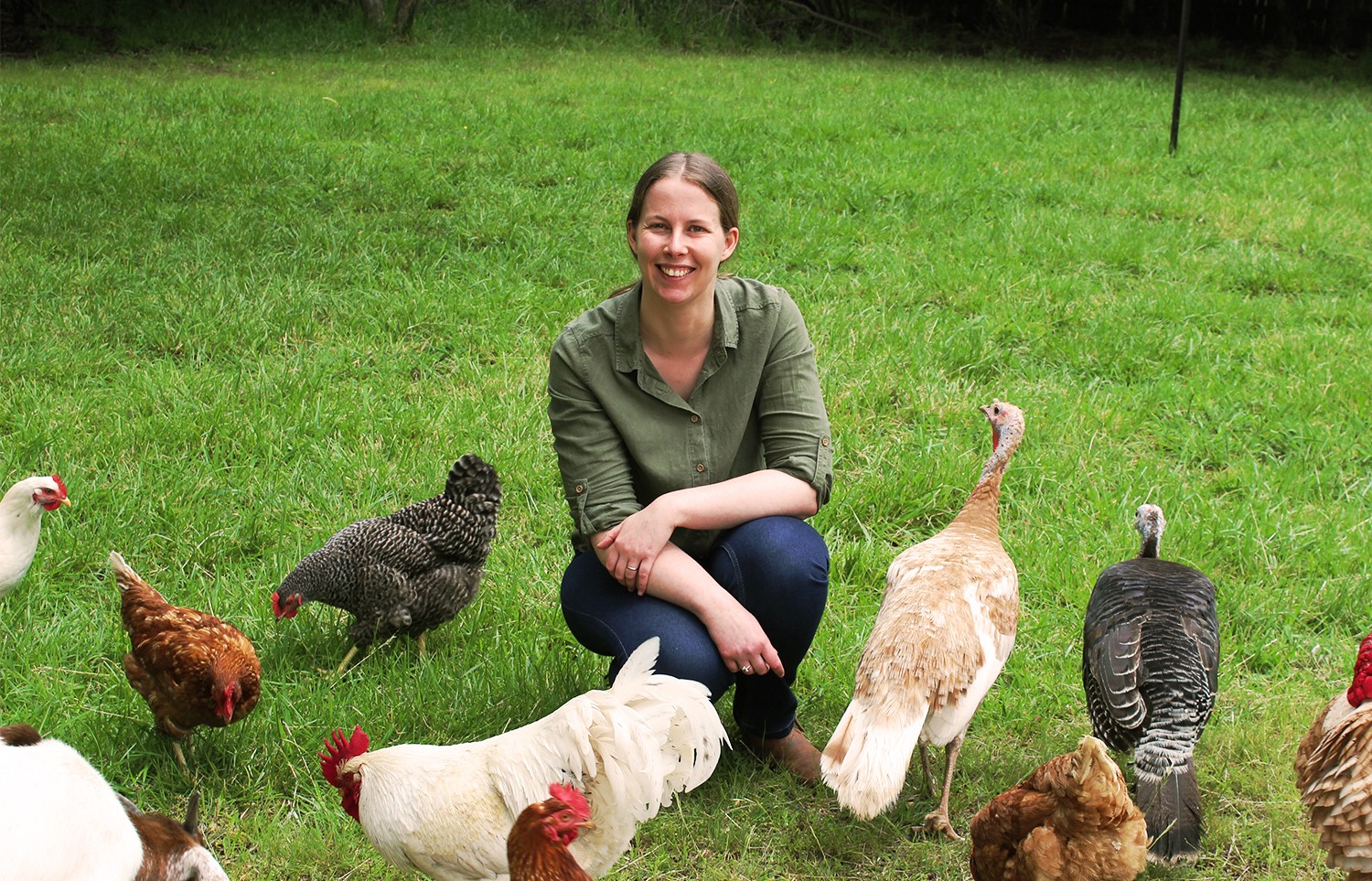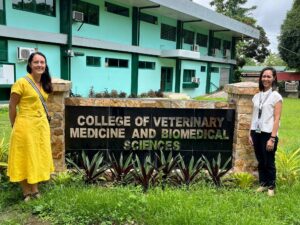Dr Amy Moss from the School of Environmental and Rural Science at he University of New England has received $410,000 to build a better understanding of poultry nutrition and the impacts that a food waste-based diet would have on broiler chickens.
If found to be effective, it could reduce Australia’s annual greenhouse gas emissions by up to five percent.
“It is so exciting to be awarded a DECRA, and I am looking forward to uncovering new knowledge in poultry nutrition using a holistic approach exploring the nutritional, health, welfare, economic and environmental effects of food waste diets,” says Dr Moss.
“Through this project, I hope to find a way to enable food waste diets for broiler chickens and gain a greater understanding of basic nutrition including, carbohydrate and fat metabolism.”
This project will build on a recent UNE study that found commercial chicken feed made from food waste would save the Australian poultry industry an estimated $500 million a year while also significantly reducing the country’s total greenhouse gas emissions.
While this study found there to be no negative effects on the health and welfare of the birds, Dr Moss’ DECRA project will further explore the health impacts of waste-based feed, with specific focus on the nutrition requirements of broiler chickens, which are bred to produce meat.
“In Australia, 7.3 million tonnes of food is disposed into landfill each year, costing $20-billion and contributing to Australia’s greenhouse gas emissions annually.”“Food waste is a potential feed for poultry, but contains a different nutrient composition to traditional ingredients and thus the effects on poultry of food waste must be explored. Therefore, this project addresses the problem of the environmental burden of food waste by enabling its use in poultry diets by exploring its effect on the production of meat-chickens.”




